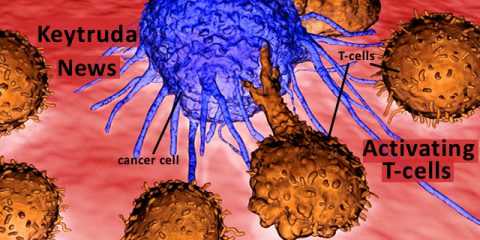In July 2015, we published a post called Patients Included In Research: Studying Cancer by Mutation Not Organ. In that post, we shared the goal that cancers would be treated not by the site of origin, but rather by their genetic features. Achieving this goal is closer than you think! This week the FDA announced accelerated approval** of a...
Read MoreProstate cancer Posts on Medivizor
Focal therapy vs active surveillance in men with low-risk prostate cancer
In a nutshell The authors aimed to determine the safety and efficacy of focal therapy compared to active surveillance in men with low-risk prostate cancer. The authors concluded that focal therapy was a safe and effective treatment option in men with low-risk prostate cancer. The also suggested that this treatment could be an option to avoid more...
Read MoreIs active surveillance suitable for prostate cancer patients regardless of age?
In a nutshell This study aimed to investigate the relationship between patient age and active surveillance outcomes in prostate cancer (PC). This study concluded that younger patients undergoing AS were less likely to see an increased Gleason score and progression. Some background Early stage PC that has not yet spread is often not treated...
Read MoreProteins in the prostate gland can help predict disease recurrence after surgery
In a nutshell This study examined if the collections of proteins in the prostate can predict prostate surgery outcomes. Authors found that protein analysis was a significant predictor of disease recurrence and metastasis (cancer spread) after surgery. Some background Prostate surgery is a first-line treatment option for prostate cancer. It has...
Read MoreHormone therapy and the risk of heart problems in men with prostate cancer
In a nutshell The authors aimed to review the different types of hormone therapy and their effect on cardiovascular morbidity and death rates in men with prostate cancer. The authors concluded that it was difficult to determine which type of hormone therapy affected the risk for cardiovascular morbidity and that further detailed research was...
Read MoreCan PSA surge impact hormone-resistant prostate cancer in the long-term?
In a nutshell The authors aimed to determine the impact of prostate specific antigen (PSA) surge in hormone-resistant prostate cancer patients following abiraterone acetate (Zytiga) treatment. The authors concluded that PSA surge occurred in both chemotherapy-treated and chemotherapy-naïve patients treated with abiraterone acetate with no...
Read MoreMore Free Vacations For Adults With Cancer: Wish Foundations
We are adding to the list of respite opportunities that are available for adults with cancer. In addition to a couple of programs like the ones featured in Free Vacations for Adults affected by Cancer, there are a few foundations for adults with cancer that are much like the well-known Make-A-Wish Foundation (for children) which provide support for...
Read MoreRadium 223-dichloride as a treatment for castration resistant prostate cancer
In a nutshell This study investigated how effective and safe radium 223 dichloride treatment was in patients with castration resistant prostate cancer (CRPC). It was concluded that radium 223 dichloride increased overall survival, reduced symptomatic skeletal events risk and was safe. Some background Treatment to decrease the male hormones,...
Read MoreCan the neutrophil to lymphocyte ratio predict outcome in enzalutamide-treated prostate cancer patients?
In a nutshell The aim of this study was to determine whether the neutrophil to lymphocyte ratio (NLR) can be used to determine outcome in CRPC patients treated with enzalutamide (Xtandi). It was concluded that NLR could be used to predict the outcome for CRPC patients treated with enzalutamide. Some background Treatment for metastatic...
Read MoreWhich prostate cancer patients are at risk of skeletal related events?
In a nutshell This study investigated whether the likelihood of developing skeletal related events (SREs) could be determined depending on the site of metastasis at diagnosis and other factors in older patients with prostate cancer. The study concluded that the likelihood of developing an SRE was similar among different sites of metastasis, except...
Read MoreThe use of circulating tumor cells in predicting survival in chemotherapy patients
In a nutshell The aim of this study was to investigate if circulating tumor cells (CTC) levels in the blood could be used to determine the outcome for metastatic castration resistant prostate cancer patients. This study concluded that CTC levels could be used to predict survival in these patients. Some background Treatment for metastatic...
Read MoreThe timing of first biopsy and its effect on prostate cancer reclassification
In a nutshell The authors aimed to determine the influence of biopsy timing on prostate cancer reclassification during active surveillance. The authors concluded that the timing of the first biopsy was not related to an increased risk of cancer reclassification, but prostate specific antigen (PSA) and body mass index (BMI – measured based...
Read More














